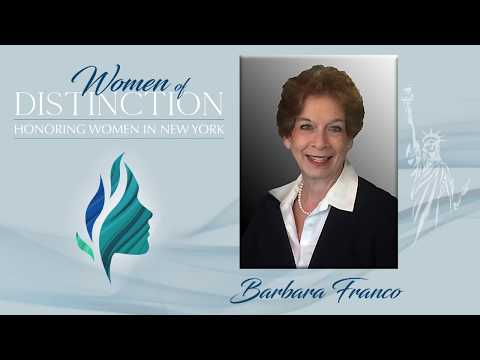
Senator Flanagan Joins Attorney General Cuomo To Announce Pension Reform Proposal
John J. Flanagan
October 9, 2009
-
ISSUE:
- Government Operations
Senator John Flanagan (2nd Senate District) joined Attorney General Andrew M. Cuomo and other elected officials to announce new, bipartisan legislation that would replace the sole trustee at the New York State Common Retirement Fund with a board of trustees and eliminate pay to play in state public pension funds.
The new legislation, entitled, “Taxpayers’ Reform for Upholding Security and Transparency” (“T.R.U.S.T.”) would institutionalize Attorney General Cuomo’s Public Pension Fund Reform Code of Conduct, announced earlier this year, and provide additional civil, criminal and administrative penalties and sanctions to ensure firms and individuals are held accountable for violations of the new law.
The Common Retirement Fund, last valued at $116.5 billion, is the state’s largest pool of money.
“For decades, the State pension fund has been weakened and corrupted by the sole trustee model,” said Attorney General Cuomo. “The model has allowed pay-to-play to flourish in a system meant to protect the retirement accounts of thousands of hard-working public employees. To put it simply - the model doesn't work. It’s about as sensible as having a single lock on Fort Knox. Today’s legislation will ensure that the fate of our public retirement fund isn’t decided by one individual, and that the entire system is rid of the kind of pay-to-play that infected and derailed it in the first place.”
“Attorney General Cuomo’s investigation has revealed numerous incidents of abuse in the current system and it is imperative that we join together to protect residents of New York State from any future corruption and fraud. The legislation he is introducing today will serve as a great starting point towards restoring the integrity that the taxpayer’s public dollars deserve and rebuild the system to protect the investment of our retirees. I look forward to working with him as we move forward with this important issue and putting together the pension system reforms that will find support on both sides of the aisle in the Senate and the Assembly,” stated Senator Flanagan.
The legislation would increase the rigor, integrity and transparency of the investment process by eliminating campaign contributions by firms investing public pension money and banning the use of intermediaries paid to open the door to public pension fund investments. The legislation would also strengthen enforcement by adding misdemeanor and felony provisions and authorizing the Attorney General to commence civil actions to enjoin ongoing violations and impose civil penalties.
Specifically the legislation:
· Creates a New Employees’ Retirement Fund Board (“Board”): To manage the Common Retirement Fund, the sole trustee will be replaced with a Board of Trustees composed of 13 members. The Comptroller would chair the Board and serve alongside six members appointed by the Governor, Attorney General, Temporary President of the Senate, Speaker of the Assembly, the Senate Minority Leader and the Assembly Minority Leader. The Board’s other six members are to be selected by the members of CRF. Specifically, one active member of the retirement system shall be selected by active members in the retirement system; one retired member shall be selected by retired members; one county employee shall be selected by county employees in the retirement system; one local government employee selected by local governmental employees in the retirement system; and one police or fire employee selected by the New York State and Local Police and Fire Retirement System. All members of the Board must have investment expertise and shall not have been employees of the retirement system for three years.
· Bans Placement Agents: Investment firms are prohibited from using placement agents, lobbyists, or any other third-party intermediaries to communicate or interact with public pension funds for any purpose. The prohibition does not apply to the use of consultants and investment banks to otherwise directly assist investment firms by, for example, preparing marketing materials or performing due diligence. Bans “Pay to Play”: Prohibits investment firms (and their principals, agents, employees and family members) from doing business with a public pension fund for two years after the firm makes a campaign contribution to any board member. The prohibition also applies to candidates for such positions, but does not apply to contributions of $300.00 or less to elected officials or candidates for whom the person making the contribution can vote.
· Increases Transparency: Requires rigorous, ongoing disclosure of information relating to the identities, responsibilities and qualifications of investment fund personnel and any payments by investment firms to third-parties in connection with public pension fund matters. Also requires investment firms to promptly publish such information on their websites.
· Imposes Higher Standard of Conduct: Holds investment firms to a higher standard of conduct that avoids even the appearance of impropriety. The legislation prohibits (1) improper relationships between pension fund officials and an investment firm's personnel or agents, (2) “revolving door” employment by investment firms of former public pension fund officials and employees, and (3) improper gifts by investment firms to public pension fund employees and officials;
· Enhances Conflicts of Interest Policies: Investment firms are required to promptly disclose and cure any actual, potential and apparent conflicts of interest to public pension fund officials or law enforcement authorities where appropriate.
· Ensures Ongoing Compliance: Investment firms must certify annually that they are in compliance with key disclosure requirements.
· Strengthens Enforcement: T.R.U.S.T. institutes comprehensive and tough enforcement provisions. History teaches that self-policing is an ineffective means to safeguard State pension funds. An effective enforcement model and deterrent is imperative. TRUST provides such a model and deterrent. It creates tough new civil, criminal and disciplinary penalties and sanctions, and requires licensed professionals to report to law enforcement evidence of violations of the law. It also provides as a basis of criminal prosecution the theft of property and honest services from the retirement system, and extends the statute of limitations for a person acting in concert with a public servant.
T.R.U.S.T. would also codify the Public Pension Fund Reform Code of Conduct created by Cuomo and his Office earlier this year. To date, seven firms have signed onto the Code: The Carlyle Group, Riverstone Holdings, Pacific Corporate Group, HM Capital, Falconhead Capital, Levine Leichtman Capital Partners, and Access Capital Partners. These firms collectively have agreed to return nearly $60 million associated with New York State Common Retirement Fund (“CRF”) investments; these funds will principally be provided to the CRF for the benefit of the pension holders.
Today’s announcement stems from a two-year, ongoing investigation into corruption involving the New York State Comptroller’s Office and the CRF, conducted by Attorney General Cuomo’s Office. The charges to date allege a complex criminal scheme involving numerous individuals operating at the highest political and governmental levels under former Comptroller Alan Hevesi, in which the New York state pension fund was used as a piggy bank for the Comptroller’s chief political aide and a favor bank for political allies and other friends.
Senator Flanagan and Attorney General Cuomo were joined at the press conference, which was held in New York City, by Senate Majority Conference Leader John L. Sampson (19th Senate District), Senator Brian Foley (4th Senate District) and Senator Eric Schneidermann (31st Senate District).
Please click here to read the text of the T.R.U.S.T. legislation.
Share this Article or Press Release
Newsroom
Go to NewsroomBoater Safety Information
May 15, 2019

2019 Memorial Day Guide
May 13, 2019


